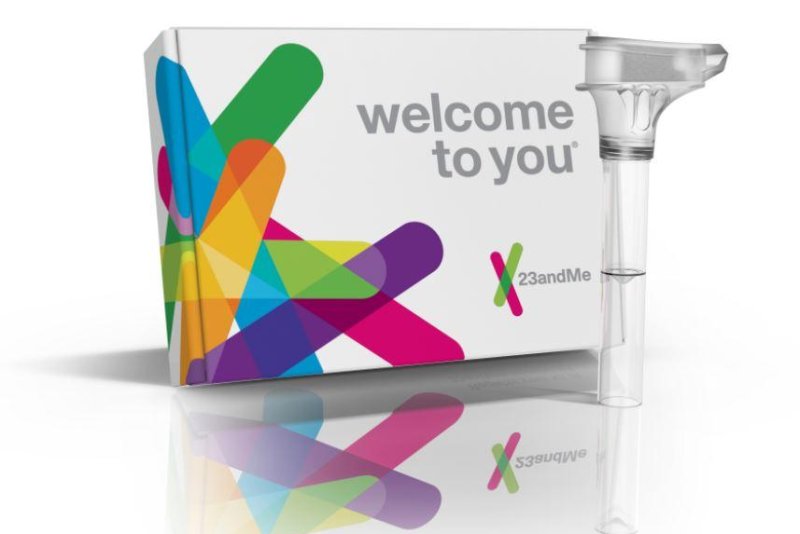
Posted on 03/08/2018 12:12:11 PM PST by nickcarraway
The FDA approved the genetic testing company's marketing of a test that reports on 3 of more than 1,000 BRCA breast cancer mutations -- and warns results may not be reliable.
The Food and Drug Administration has approved 23andMe's home test to detect three breast cancer mutations most common in people of Eastern European Jewish descent.
The decision by the FDA, announced Tuesday, allows the genetics testing company to include these results as part of its $199 Health and Ancestry product. DNA from saliva samples is used to inform customers about their families' countries of origin, along with information on genetic health risks.
"Being the first and only direct-to-consumer genetics company to receive FDA authorization to test for cancer risk without a prescription is a major milestone for 23andMe and for the consumer," Anne Wojcicki, 23andMe CEO and co-founder, said in a press release. "We believe it's important for consumers to have direct and affordable access to this potentially life-saving information. We will continue pioneering a path for greater access to health information and promoting a more consumer-driven, preventative approach to healthcare."
The BRCA1/BRCA2 hereditary mutations are found in about 2 percent of Ashkenazi Jewish women. People with one of the variants have a 45 percent to 85 percent chance of developing breast cancer by age 70, the company said.
The test only detects three of more than 1,000 known BRCA mutations -- and it does not provide information on a person's overall risk of developing any other type of cancer.
"This test provides information to certain individuals who may be at increased breast, ovarian or prostate cancer risk and who might not otherwise get genetic screening, and is a step forward in the availability of DTC genetic tests. But it has a lot of caveats," said Donald St. Pierre, acting director of the Office of In Vitro Diagnostics and Radiological Health in the FDA's Center for Devices and Radiological Health. "While the detection of a BRCA mutation on this test does indicate an increased risk, only a small percentage of Americans carry one of these three mutations and most BRCA mutations that increase an individual's risk are not detected by this test."
The test is not recommended, St. Pierre said, "as a substitute for seeing your doctor for cancer screenings or counseling on genetic and lifestyle factors that can increase or decrease cancer risk." The agency added that test results should not be used to determine treatment, including anti-hormone therapies and prophylactic removal of the breasts or ovaries.
The FDA notes that most cancer cases are not caused by hereditary gene mutations, but rather by a range of potential causes that can include smoking, obesity, hormone use and other lifestyle issues.
The FDA required 23andMe to provide sufficient data to show that the test is accurate and can provide reproducible results.
Founded in 2006, the consumer genetics and research company's mission "is to help people access, understand and benefit from the human genome," according to a release. It based its name on each cell normally containing 23 pairs of chromosomes.
In 2010, the company started reporting to customers on these breast cancer mutations without FDA approval. After receiving warnings from the agency, 23andMe stopped including the results.
The agency is now requiring the company to explain the limits of the tests and that it is inappropriate to use them when making decisions about medical treatment.
"This authorization is incredibly valuable for those who might not be aware of their Ashkenazi Jewish descent or aren't familiar with their family history of cancer," Wojcicki said. "But it's important to understand that the majority of cancer is not hereditary, our test does not account for all genetic variants that can cause a higher risk of cancer, and people should continue with their recommended cancer screenings."

Problem is that this company’s employees (current and past if I recall correctly), shared that the results are somewhat bogus and they mix it up to show people having African roots when they don’t. Further, that there is a lot of guess work in their results, even when they don’t intentionally screw with white people. Apparently these tests are “for entertainment purposes only”, not real or meaningful.
we got our 23 & Me done over Xmas- there was a sale.
No surprises, my husband and i had the same heritage we thought we did.
I heard they sell the results to the NSA....
I didn’t do the medical part of the DNA testing because there’s the possibility that health/life insurance companies can use the knowledge against you. Even if the insurance companies don’t have direct access to your results, if they have a question like, “Do you have any knowledge that you have a predisposition for diseases such as....”, and you answer in the negative when you’ve been told you have the gene for one of the diseases asked about, your policies can be voided if they find out.
Make that direct customer to Big Brother service.
No way. Don’t they have some connection to Google?
That is one way to find out about your ancestry-there are other choices-like doing research online and elsewhere, etc for those of us who reject having our DNA info out there in what amounts to a public venue.
Most of the people I know won’t even answer personal questions on a form at a dental office, much less anywhere else-certainly not having their DNA info out there-I’m one of those people-there are many ways that info may be used-and aside from taking your money and giving you results that may or may not be totally true, I strongly suspect the uses of that info will not be beneficial...
Disclaimer: Opinions posted on Free Republic are those of the individual posters and do not necessarily represent the opinion of Free Republic or its management. All materials posted herein are protected by copyright law and the exemption for fair use of copyrighted works.